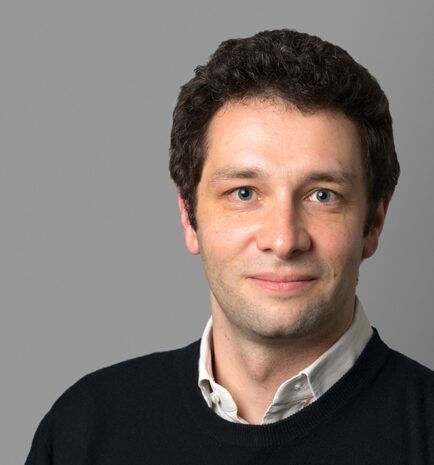
Squeezing the most out of only one or two days – hackathons are all about coming up with solutions in a short amount of time. Participants often forego lunch and dinner for a pizza break (eaten in front or very near a computer) and a comfy hotel bed for a sleeping bag. Despite them containing the word “marathon”, hackathons are more like a prolonged sprint with participants typing away at their keyboards often throughout the night (the other part of the word doesn’t refer to “hacking” as in trying to breach other computer systems, but rather to a way of exploratory programming).
The first use of the word can be traced back to 1999 when a cryptographic programming event was held in Calgary, Canada. Since then there have been countless hackathons all over the world sometimes marking the starting point of a remarkable success story. Companies such as GroupMe (later acquired by Skype) or Nitobi (later bought by Adobe) were born out of a hackathon event. Presenting a new and innovative approach to learning, hackathons have also been adopted by universities, among them the University of Geneva and Tsinghua University.
Mr. Felix Fellmann, Head of International Cooperation at the Embassy of Switzerland in China, will briefly touch upon the Impact Hackathons Asia Pacific project. Building on the existing partnership between the Geneva University and Tsinghua University, this hackathon tackles sustainability-related issues and is managed by Dr. Renaud Vuignier as part of the SDC Beijing office portfolio.
Subsequently, Ms. Pearl Donghui Mao will describe the Tsinghua SDG Open Hack in detail (an event inspired by a hackathon of the University of Geneva). She will explain how it helps students to understand the innovation process and how it develops their teamwork skills. Ms. Mao will also talk about the goals of this undertaking – namely finding practical solutions to bring about a more sustainable future.
Next, Mr. Thomas Maillart, Founding President of Open Geneva and a Senior Lecturer at University of Geneva, will present the Geneva Crisis and Resilience Innovation Fund, a joint endeavor launched by the Canton of Geneva, the University of Geneva, the University of Applied Sciences in Geneva and Open Geneva to build a more resilient and sustainable economy. To conclude, Mr. Jonas Haertle, Special Assistant to the Executive Director, United Nations Institute for Training and Research (UNITAR), is subsequently scheduled to give a brief address on a related topic.
Event Rundown
16:00-16:10 Introductory remarks
16:10-16:15 Impact Hackathons Asia Pacific – Exploring innovative ways for cooperation and development
(Mr. Felix Fellmann – Head of International Cooperation at the Embassy of Switzerland in China)
16:15-16:30 From ideas to sustainable impact: SDG Open Hack at Tsinghua University
(Ms. Pearl Donghui Mao – Director of Tsinghua x-lab, School of Economics and Management (SEM), Tsinghua University)
16:30-16:45 Open Innovation & Crowdsupport to Upgrade the Economy
(Mr. Thomas Maillart – Founding President Open Geneva, Senior Lecturer at University of Geneva)
16:45-16:50 Knowledge to Lead
(Mr. Jonas Haertle – Special Assistant to the Executive Director, United Nations Institute for Training and Research UNITAR)
16:50-17:00 Q&A and Conclusion
Speakers
-
![]()
Bio
Mr. Felix Fellmann
Head of International Cooperation at the Embassy of Switzerland in ChinaMr. Felix Fellmann is the Head of the International Cooperation Division of the Swiss Embassy in China since September 2017. In this capacity he oversees the activities and programs of the Swiss Agency for Development and Cooperation (SDC) in China. Mr. Fellmann served as General Consul and Director of Cooperation in Mongolia; Director of Cooperation for Honduras, Nicaragua and El Salvador; and Coordinator for the programs of SDC in Central Asia. Prior to his current appointment, he served as Policy Advisor and Focal Point for agriculture and food security at SDC Headquarters.
-
![]()
Bio
Ms. Pearl Donghui Mao
Director of Tsinghua x-lab, School of Economics and Management (SEM), Tsinghua UniversityMs. Pearl Donghui Mao has initiated Tsinghua x-lab, an educational platform (not an incubator) for Tsinghua University since 2013. Under her leadership, the x-lab provides innovation and entrepreneurship related to education, services and resources for students, alumni and teachers from all departments of Tsinghua, aiming to cultivate and improve the innovative and entrepreneurial cognition and ability of the students, promote integration and cooperation among cross-disciplinary teams, and develop innovation program partnership with various corporations.
-
![]()
Bio
Mr. Thomas Maillart
President Open Geneva, Senior Lecturer at University of GenevaThomas Maillart is a Senior Lecturer at the University of Geneva School of Economics and Management. Combining theoretical and empirical scientific research with hands-on practice, Thomas aims to investigate, model and enhance human collective intelligence, through better understanding of incentives, structures and dynamics of social interactions online and in the physical world. In particular, Thomas is interested in the danger and opportunities arising from the fast expanding cyberspace. Thomas is also the Founding President of Open Geneva, and the Manager of SDG Solution Space, a education maker space, located at the heart of International Geneva, to foster innovation for the UN Sustainable Development Goals.
-
![]()
Bio
Mr. Jonas Haertle
Special Assistant to the Executive Director, United Nations Institute for Training and Research (UNITAR)As of March 2019, Jonas Haertle is the Special Assistant to UNITAR’s Executive Director. In this role, he develops and oversees strategic projects for UNITAR and supports the Executive Director with the Institute’s strategy, mission and activities. Mr. Haertle joined UNITAR in September 2018 to develop a new set of partnerships for UNITAR and higher education institutions in support of the Sustainable Development Goals (SDGs). From 2010 to July 2018, Mr. Haertle was the Head of the Principles for Responsible Management Education (PRME), an initiative founded by the United Nations Global Compact and leading business school associations. Prior to joining the United Nations, Mr. Haertle worked as a research analyst for the German public broadcasting service Norddeutscher Rundfunk.
In collaboration with
Connected Series
The Connected Series is a new format at Swissnex in China putting a spotlight on the best Sino-Swiss collaboration projects and research efforts. It highlights how teams from both countries can best work together to create synergies and get their projects off the ground.







